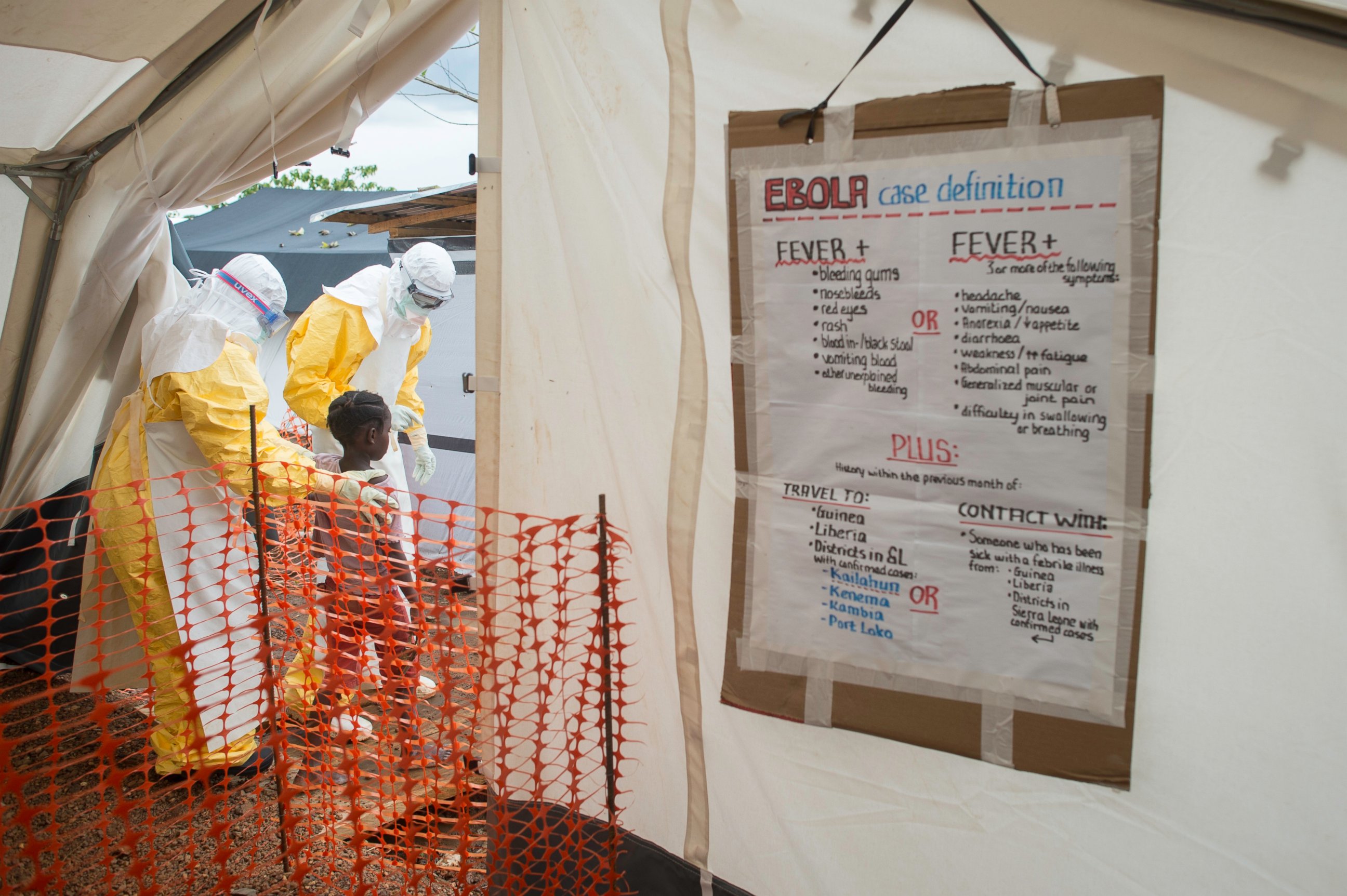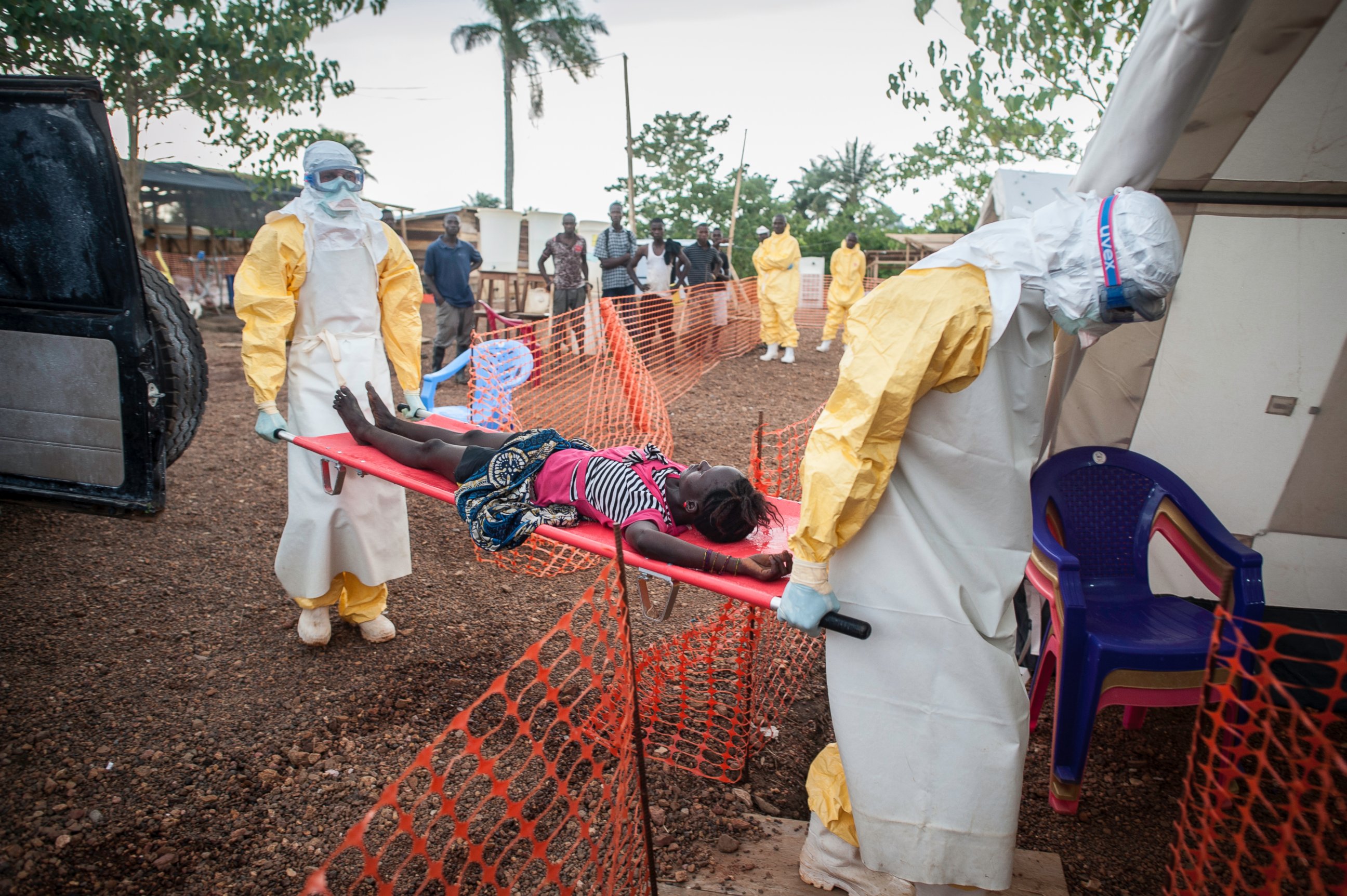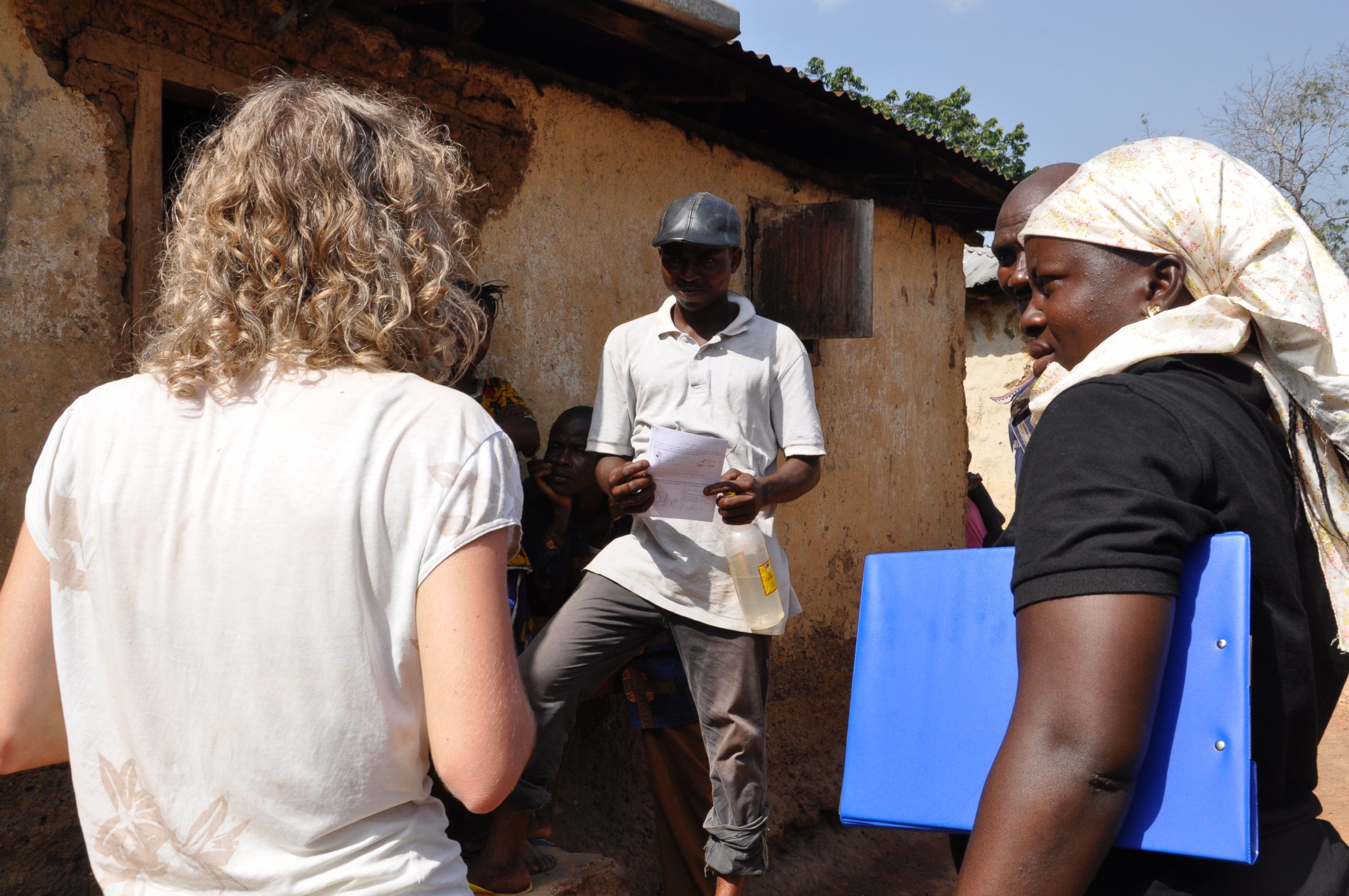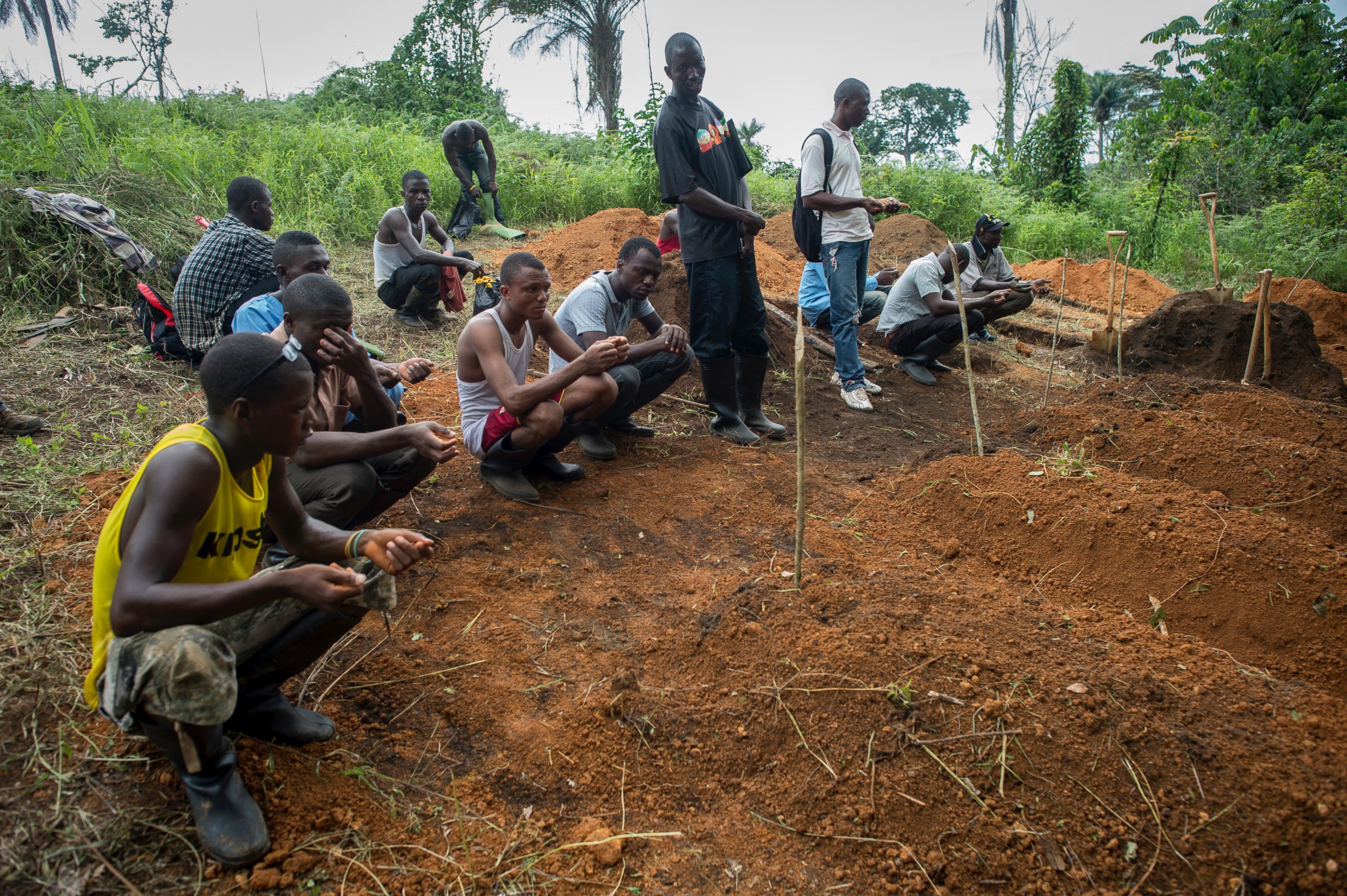Doctors Battling Ebola Are Met With Fear, Mistrust
Suspicion of Western medicine is hampering progress, experts say.
July 28, 2014— -- Doctors battling Ebola in Sierra Leone, Guinea and Liberia say a mistrust of Western medicine is hampering efforts to contain the outbreak.
At least 1,201 people having contracted the virus and 672 people have died in what health officials are calling the worst Ebola outbreak in history.

Dr. Michel Van Herp of the medical charity Doctors Without Borders said his organization has even been accused of “bringing the disease” into certain villages. He also said Ebola has been mystified by villagers, who fear that “to say ‘Ebola’ aloud is to make it appear.”
“They believe that. but the reverse is also believed to be true,” said Van Herp. “Denying that Ebola exists would mean that it won’t be able to affect you.”
Ebola, Spreading in Africa, Could Land in US
How Ebola Emerged Out of the Jungle
American Doctor Undergoing Treatment After Testing Positive for Ebola

Van Herp and his colleague, Dr. Hilde de Clerck, have been on the front lines of six past Ebola outbreaks, according to Doctors Without Borders.
“To control the chain of disease transmission it seems we have to earn the trust of nearly every individual in an affected family,” said de Clerck, noting that 20 villages in Guinea near the Sierra Leone and Liberian borders still deny access to their medical team.

Medical personnel must wear full-body plastic protective gear, which De Clerck said is uncomfortable and difficult to bear in the region’s high temperatures.
De Clerck said the work also takes an emotional toll, as up to 90 percent of those who contract the virus die a painful and terrifying death.
“We are the last people to touch them and many of them ask us to hold their hands,” she said.






